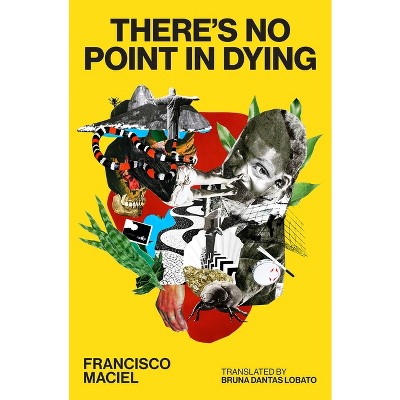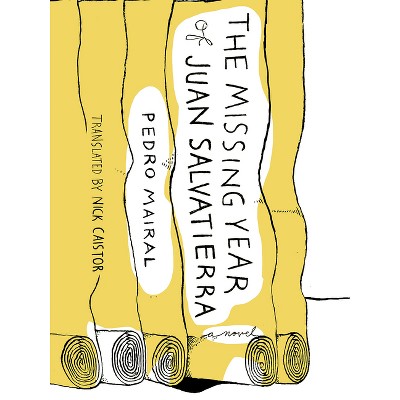Sponsored

Ugliness - by Moshtari Hilal (Paperback)
In Stock
Sponsored
About this item
Highlights
- "A sweeping meditation on a subject rarely addressed . . . Hilal takes on our beauty-worshipping celebrity culture and the beauty industry for . . . keeping women in an expensive prison of self-doubt . . . Ugliness makes a 'big picture' argument, panning outward from one young woman's life to some of the largest issues we confront globally--hence to all of our lives.
- About the Author: Moshtari Hilal is a visual artist, writer, and curator based in Hamburg and Berlin.
- 224 Pages
- Biography + Autobiography, Women
Description
About the Book
"How do power and beauty join forces to determine who is considered ugly? What role does that ugliness play in fomenting hatred? Moshtari Hilal, an Afghan-born author and artist who lives in Germany, has written a touching, intimate, and highly political book. Dense body hair, crooked teeth, and big noses: Hilal uses a broad cultural lens to question norms of appearance -- ostensibly her own, but in fact everyone's. She writes about beauty salons in Kabul as a backdrop to the U.S. invasion of Afghanistan, Darwin's theory of evolution, Kim Kardashian, and a utopian place in the shadow of her nose. With a profound mix of essay, poetry, her own drawings, and cultural and social history of the body, Hilal explores notions of repulsion and attraction, taking the reader into the most personal of realms to put self-image to the test. Why are we afraid of ugliness?"--Book Synopsis
"A sweeping meditation on a subject rarely addressed . . . Hilal takes on our beauty-worshipping celebrity culture and the beauty industry for . . . keeping women in an expensive prison of self-doubt . . . Ugliness makes a 'big picture' argument, panning outward from one young woman's life to some of the largest issues we confront globally--hence to all of our lives."--Rhonda Garelick in The New York Times
How do power and beauty join forces to determine who is considered ugly? What role does that ugliness play in fomenting hatred? Moshtari Hilal, an Afghan-born author and artist who lives in Germany, has written a touching, intimate, and highly political book. Dense body hair, crooked teeth, and big noses: Hilal uses a broad cultural lens to question norms of appearance--ostensibly her own, but in fact everyone's. She writes about beauty salons in Kabul as a backdrop to the U.S. invasion of Afghanistan, Darwin's theory of evolution, Kim Kardashian, and a utopian place in the shadow of her nose. With a profound mix of essay, poetry, her own drawings, and cultural and social history of the body, Hilal explores notions of repulsion and attraction, taking the reader into the most personal of realms to put self-image to the test. Why are we afraid of ugliness?
Review Quotes
"An intense reading experience presenting the human body as a foreign specimen under the surveillance of judging, watchful eyes . . . Ugliness is for readers not afraid of feeling unsettled when looking into the mirror of society's grotesque views."--Booklist
"Thoughtful and compelling . . . poetic and political, attentive and meticulous, Hilal's genre-bending text is an invitation to face our fears--so we can finally stop projecting them . . . It's refreshing to get our hands on literature so daring, so fearless."--Asymptote
"A thoughtful, provocative, playful, and truly original exploration of bodily aesthetics and the factors that define them. A wondrous and important book."--Melissa Febos, author of Girlhood and Body Work
"How can ugly people become beautiful? Moshtari Hilal's brilliant (and perfectly illustrated) Ugliness has finally appeared in English. Her rumination on what makes us think that we are ugly, that we don't fit in, that all stare at us or indeed avoid looking at us, provides personal and historical insights into our fantasies about ourselves."--Sander Gilman, author of Making the Body Beautiful. A Cultural History of Aesthetic Surgery
"Hilal has managed to distort beauty and to beautify ugliness with her probing narrative and astute gaze. This is a profound, political, engrossing work."--Aysegül Savas, author of The Anthropologists and Walking on the Ceiling
"Cultural commentary intermixes with poetry, visual art, and personal and political musings as Hilal moves through time, space, and medium to locate ugliness in every nook she can . . . Hilal is magnificent."--The Brooklyn Rail
"A brave, valuable exploration of something we don't usually want to address, and a thoroughly determined attempt to define the indefinable. Ugliness is truly readable and intelligent."--Virginia Nicholson, author of All the Rage: Stories from the Frontline of Beauty
"Ugliness is a chronicle of painful confrontations with the brutal, unimaginative regime of white Anglo-European beauty, but it's also a savage indictment of the kind of power that requires ugliness to function . . . After reading this book, I'm energized by it. In a world of faux pluralism and filtered, glassy, false surfaces, it's exciting to be a little ugly."--Dirt
"Ugliness is a formally inventive work. It's also both intensely personal and wildly ambitious, a book that leaves the reader impressed with Hilal's observations about life, appearances, and aesthetics."--Words Without Borders
"An unflinching, politically charged visual and textual exploration into the norms of appearance. Awarded the Hamburg Literature Prize 2023 for non-fiction, the book explores who we are putting at the end of accusations of ugliness, and why."--GQ Middle East
"Deals with the concept of ugliness and what responsibility society has toward bodies deemed to be 'ugly.' It's about the meaning of beauty, growing up and coming to terms with ugliness."--Vogue Germany
"Ugliness defies categorisation. It is at once autobiographical work, charting Hilal's awareness and subsequent policing of her own ugliness, but it also traces the construction of ugliness and beauty as political tools."--The Skinny
"While we discuss beauty freely and often, ugliness is rarely spoken about. Something about the word feels taboo. Yet underlying the products we're sold to look beautiful and the rituals we're advised to follow are an effort to stay far away from what might be considered 'ugly' . . . Hilal implores us to think about what we've learned about ugliness throughout our lives and the history these ideas are steeped in."--Dazed Magazine
"Wonderful . . . for anyone who has ever pondered society's obsession with not being ugly--all of the implications of that, from disability and illness to racism and aging. Ugliness is set apart by Hilal's explorations of different forms of expression, and by how incredibly profound it is. Deeply thoughtful, and very highly recommended."--Harare Review of Books
"Both dreamy and grounded, expansive and constrained, Ugliness makes for a conceptual puzzle that will appeal to anyone interested in the cultural critique of aesthetics . . . Ugliness is utterly beautiful."--A Thin Slice of Anxiety
"Ugliness dissects what we could reductively call the beauty industry. The book's original German title, Hässlichkeit, is derived from Hass, or hate . . . Translator Elisabeth Lauffer carefully preserves the layers of meaning, sustaining the word's abrasiveness for English readers."--Full Stop
"Aesthetic canons are the result of an education that seeks to create hierarchies. And they are arbitrary as explained by Moshtari Hilal, an artist finally at peace with a face that has long tormented her."--Vanity Fair Italy
"What makes Ugliness special is the unconventional form of the text: a mixture of essayistic passages, autobiographical writing, poems, personal photos and collages, in which the author's nose often can be seen . . . The personal mixes with the researched, the stylized with the academic. Ugliness should therefore also be understood as a work of art, not just as a non-fiction book. As this hybrid, Ugliness is captivating."--Süddeutsche Zeitung
"People still endure massive pain just to avoid being considered ugly. There is a reason for this, concludes Moshtari Hilal: beauty needs ugliness. Her book is a revelation, an eye-opener, a slap in the face."--Westdeutscher Rundfunk
About the Author
Moshtari Hilal is a visual artist, writer, and curator based in Hamburg and Berlin. Born in Afghanistan, she pursued Islamic studies and political science in Hamburg, Berlin, and London.
Elisabeth Lauffer is the recipient of the 2014 Gutekunst Translation Prize. After graduating from Wesleyan University, she lived in Berlin and then obtained a master's in education from Harvard.
Shipping details
Return details
Frequently bought together
Trending Non-Fiction

















